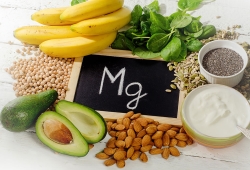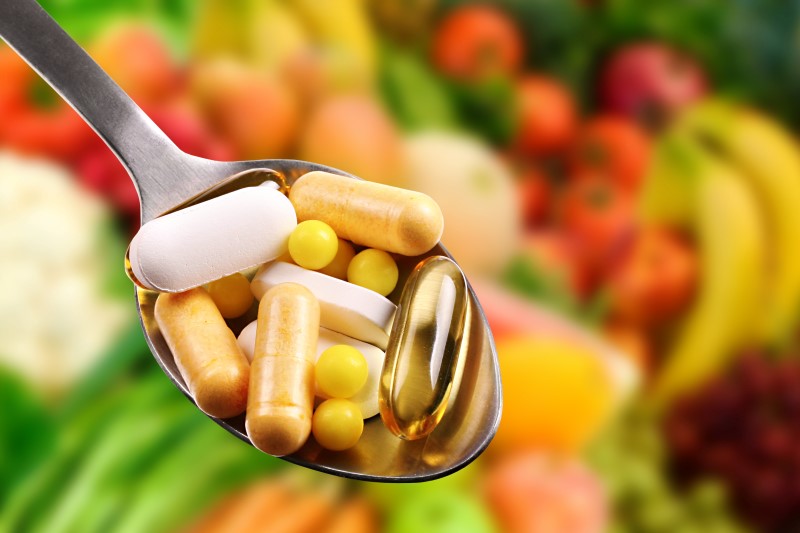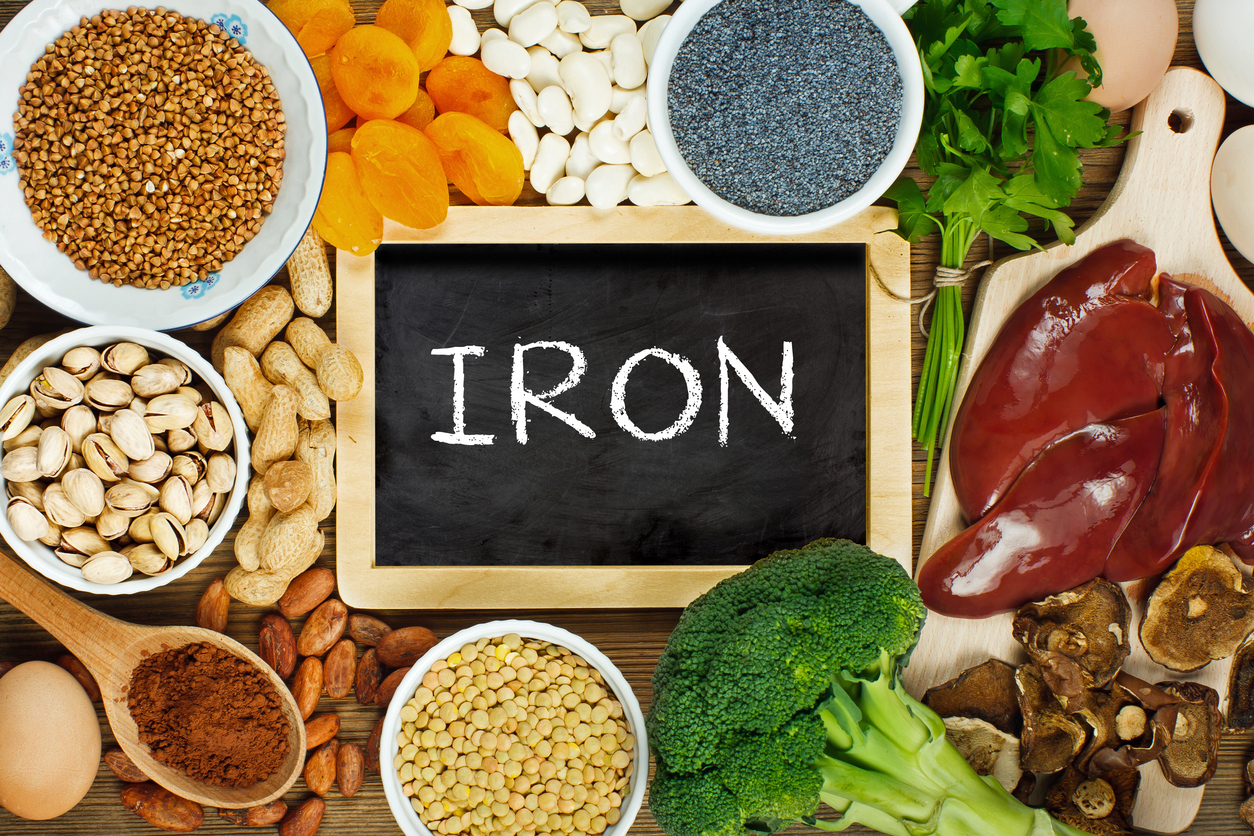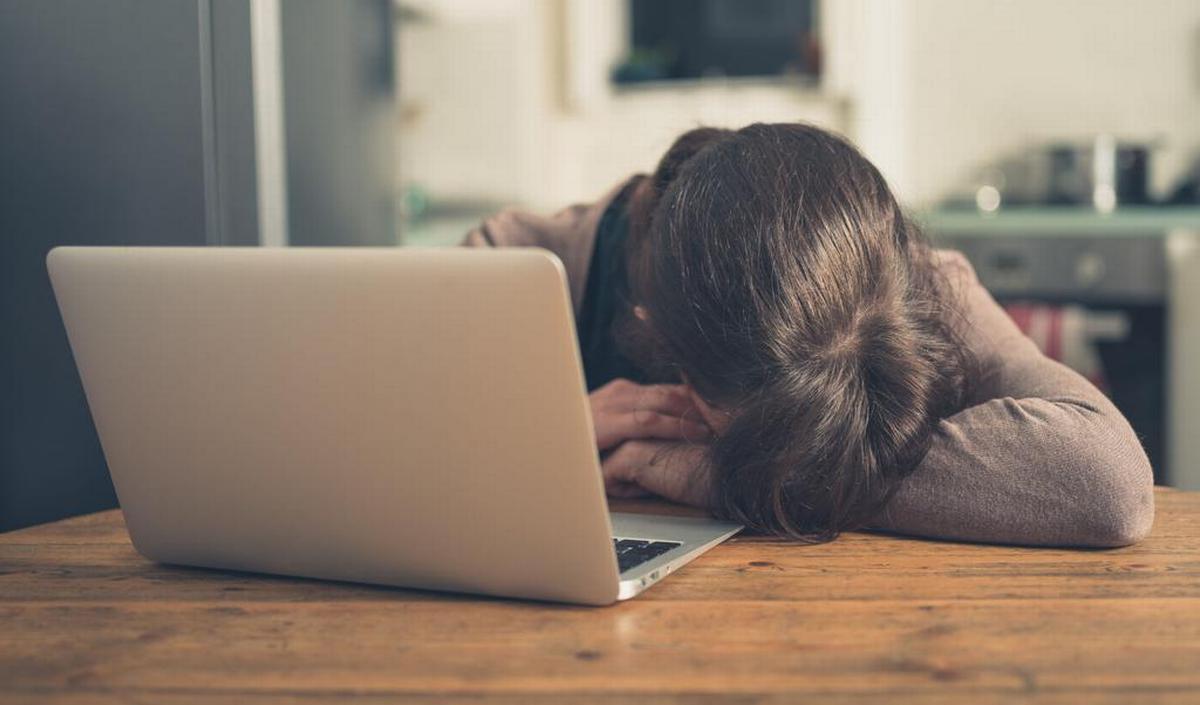We all suffer from energy dips or lower energy levels than we want from time to time. Natural supplements for energy and focus can help you boost energy levels naturally. This will give you more energy and help you focus better. In this blog, we discuss different natural supplements to get more energy.
Energy

Vitamin pills prevent vitamin deficiency
Content
Do you often feel tired, lifeless and lack energy? This affects your daily life a lot. It's hard to get out of bed, you barely get done what you need to do and you can't enjoy fun things. Maybe you have a vitamin deficiency.
Especially in the dark cold months, your energy levels could use a boost.
You can watch your diet and eat some more fruits and vegetables, but an easy way to help your body get some more energy is through vitamin supplements.
In this article, we'll tell you more about the different types of vitamins and minerals your body needs, how to notice a deficiency and what you can do about supplementing them.
Disclaimer: vitamin pills are not a panacea - there is no such thing. It can help you, but always make sure you use supplements responsibly and informed. When in doubt, consult a doctor.
Vitamin C

Vitamin C is perhaps the best-known vitamin. It is also known as ascorbic acid. Vitamin C is an antioxidant: it protects your body cells from damage to connective tissue. You need vitamin C for the absorption of iron, the formation of connective tissue and maintaining your resistance.
Vitamin C is found in many fruits, vegetables and potatoes. Various types of cabbage, citrus fruits such as lemons and oranges, kiwis, berries and strawberries are particularly high in vitamin C. A vitamin C deficiency reduces your resistance, wounds may not heal properly and you may end up with scurvy. Too much vitamin C can cause intestinal problems or diarrhoea.
Vitamin C is water-soluble. To preserve the vitamin in vegetables as much as possible, it is best to cook them in little water for as short a time as possible. In an acidic substance such as orange juice, it is retained reasonably well. If you eat a healthy and varied diet, you will get enough vitamin C in most cases. When this is not the case, you can increase your intake with Vitamin C tablets.
Vitamin B12

Vitamin B12, also known as cobalamin, you need to make red blood cells. Those red blood cells carry oxygen in your blood. Vitamin B12 also ensures a properly functioning nervous system.
Vitamin B12 is found in animal products such as milk and dairy products, meat, fish and eggs.
If you eat vegan or vegan, it is recommended to take a vitamin B12 supplement or use products with added vitamin B12. In food, B12 is bound to a protein. In the stomach, this is detached by stomach acid. Then, in the small intestine, vitamin B12 binds to another protein. This coupling is necessary for vitamin B12 to be absorbed into the body. About 40-50% of the B12 you take in is actually absorbed by your body.
A deficiency in vitamin B12 can lead to anaemia.
This manifests itself in:
- Fatigue
- Dizziness
- Palpitations
- Tinnitus
It can also have neurological consequences such as memory loss and weak muscles.
Such a vitamin B12 deficiency is not common. This is because B12 is the only water-soluble vitamin that your body stores. So you often only notice it after you have been taking too little vitamin B12 for a long time. Your GP can diagnose this and determine how to solve it: when you have a deficiency, it is difficult to supplement with food alone. For example, the GP can prescribe vitamin B12 injections, or treat the deficiency with vitamin B12 supplements.
In people who take in too much vitamin B12, there are no known adverse effects. Your body takes care itself not to absorb too much vitamin B12.
Our favourite vitamin B12 products
It is not necessary for everyone to take extra vitamin B12. If you eat vegan or consume few animal products, however, it is recommended. Also, if it has been diagnosed by a GP, it may be a good idea to take extra supplements permanently.
Magnesium

Magnesium is a mineral you can find in cereal products, vegetables, nuts and dairy products, among others. Your body needs it for the formation of bones and muscles. It also ensures the transmission of stimuli through your muscles and nerves, the proper functioning of your muscles and energy production of the body's cells.
Magnesium deficiency is rare. In fact, magnesium is found in many different foods. When your kidneys or intestines do not work properly, however, a deficiency can occur.
The symptoms of magnesium deficiency are:
- General lethargy and fatigue
- Muscle cramps
- Cardiac arrhythmias (in extreme cases)
It is difficult for a doctor to diagnose a magnesium deficiency. Only 1% of the magnesium in your body is in the blood. About half is in your bones and teeth and the rest in cells, muscles and organs.
Excess magnesium can only occur when taking magnesium tablets. At more than 250 milligrams a day extra, on top of magnesium from your diet, you may experience intestinal problems such as diarrhoea.
Our favourite magnesium products
If you suspect you have a magnesium deficiency, you can take magnesium supplements or salts for this. This should be a maximum of 250 milligrams a day. When looking for a magnesium supplement, pay attention to what kind of magnesium it contains. Magnesium citrate is an easily absorbable form of magnesium in supplements. Other forms, such as magnesium oxide, are less well absorbed.
Caffeine pills

Caffeine is a substance found in coffee and in smaller amounts in tea. Caffeine is also found in energy drinks, cola, chocolate, chocolate milk and in some dietary supplements. In small amounts, caffeine can increase your alertness and concentration and improve your sports performance. Too much caffeine can give you symptoms such as restlessness, sleep problems, anxiety or headaches. This varies from person to person.
When you eat or drink something that contains caffeine, your body absorbs it quickly, almost completely. Caffeine stimulates your nervous system. It does not in itself give your body energy like fats, sugars or proteins do, but it can make you feel more energised. The substance adenosine in your brain normally makes you feel sleepy, but caffeine temporarily prevents your brain from getting this signal. You then temporarily experience less sleep pressure. If you take 100mg of caffeine at once or just before bedtime, it can affect your sleep.
For athletes, caffeine can help you get even more out of your sporting performance. your alertness and concentration increase, your stamina improves and it can make you feel the heaviness of your effort decrease.
To feel any effect, you need to take between 2 and 6 mg of caffeine per kilogram of body weight on average. The best time to take it depends on the type of sport you do and whether you take a drink, supplement or gum.
In general, it is safe to take a maximum of 200mg of caffeine at one time.
Our favourite caffeine pills
It is advisable to be careful with caffeine pills. This is because caffeine pills contain a high concentration of caffeine and you may not realise how much caffeine you are actually taking. A caffeine pill often contains 200mg of the substance, which is equivalent to about 5 cups of coffee. So when you take multiple pills, it can indeed be dangerous and cause poor circulation, palpitations, and in the worst case scenario, brain damage or a heart attack.
So read up carefully when you start using caffeine pills and never exceed the recommended dosage on the package. If you know exactly how much caffeine you are taking and you are not drinking 10 cups of coffee a day with it, you can feel free to use it.
Why buy vitamin pills from Slimminglabs
Slimminglabs offers several vitamin pills at the lowest price. You will have these in your home within just one day!
Check out the different vitamin pills to see which one best suits you and your needs.
What are the best vitamin pills?
What the best vitamin pills are different for each person. Look at your symptoms or have a test done to see which vitamins and minerals you might be deficient in. On that basis, you can decide which vitamins you need and which product is best suited to them.
Which vitamin pills should I order?
This also varies from person to person. First make sure you know what your needs are and which vitamins you need extra of. Then you can compare different brands and types to find the best one for you.
Is it wise to take vitamin pills?
If you always eat a healthy and varied diet, there is usually no need to take vitamin pills. If you feel tired and sluggish, don't feel good about yourself or experience other complaints, it may help to take extra vitamin pills. Getting too much of a particular vitamin can't do much harm in most cases.
Are vitamin pills useful?
If you are not getting the recommended daily amount of vitamins, it is good to supplement it with vitamin pills. If you eat a healthy and varied diet and take in enough fruits and vegetables, vitamin pills have not been proven to further help your health.
Which vitamin pills are good?
Which vitamin pills are best depends entirely on your needs. Keep track of your diet or get tests to see if you might have a vitamin deficiency. If so, take a close look at what ingredients are in vitamin pills and whether they fit what you need.
What happens when you take too many vitamin pills?
In most cases, there is no harm in taking in too many vitamins: your body excretes the excess itself. If you take in too much vitamin C or magnesium, you may experience intestinal discomfort or diarrhoea. Always stick to the recommended dosage.
Do you pee vitamin pills?
Water-soluble vitamins such as vitamins B and C will pee out if you take too much of them. So taking extra of these makes no sense and is a waste. Your body knows when you have had enough. So check carefully whether you need to take extra vitamin pills and always stick to the recommended dosage on the packaging.
Bibliography
Meldpunt. (2019, 2 22). Zijn cafeïnepillen slecht? Opgeroepen op 12 2022, van max meldpunt: https://www.maxmeldpunt.nl/gezondheid/zijn-cafeinepillen-slecht/
Voedingscentrum. (sd). Cafeïne. Opgeroepen op 12 2022, van voedingscentrum: https://www.voedingscentrum.nl/encyclopedie/cafeine
Voedingscentrum. (sd). Magnesium. Opgeroepen op 12 2022, van voedingscentrum: https://www.voedingscentrum.nl/encyclopedie/magnesium.aspx
Voedingscentrum. (sd). Vitamine B12 (cobalamine). Opgeroepen op 12 2022, van voedingscentrum: https://www.voedingscentrum.nl/encyclopedie/vitamine-b12.aspx
Voedingscentrum. (sd). Vitamine C. Opgeroepen op 12 2022, van voedingscentrum: https://www.voedingscentrum.nl/encyclopedie/vitamine-c.aspxv
-
Read more »
-
Read more »
Think you suffer from iron deficiency? Iron deficiency is common and can be recognised by the symptoms of fatigue, shortness of breath, pallor, dizziness, headache, palpitations, tinnitus, and the feeling of fainting. In this blog, we discuss what iron deficiency is, what causes iron deficiency and how it can be treated and prevented.
-
Read more »
Fatigue, we all suffer from it from time to time. With fatigue, our body fails to produce enough energy. This leaves us feeling tired and often unable to move forward. One of the most common causes of fatigue is vitamin deficiency. Our body then lacks essential nutrients and cannot function optimally. Fortunately, there are several vitamins against fatigue. In this blog, you will read which vitamins work for fatigue and which products contain these vitamins.
-
Read more »
Everyone is tired from time to time. After a busy day, during a stressful period or simply after several nights of bad sleep. Unfortunately, what you also often hear these days is that people are tired after a corona infection. Corona can have a serious impact on people's health. Not only during the infection, but also in a period afterwards. Three months after an infection with the virus, almost half of people still report long-term complaints, according to the RIVM. The most common complaint is fatigue. In this blog, we discuss the causes and symptoms of fatigue after corona, as well as 'what to do about fatigue after corona'.
-
Read more »
You have probably wondered before why you are so tired. There is no one standard answer to this question. In fact, fatigue symptoms can be caused by many things. Sometimes there is one obvious cause for fatigue, for example if you have been exercising a lot or sleeping little. However, it is usually caused by a combination of several factors. Often it is because you do more than your body can handle. Diseases like Pfeiffer's disease, the flu, corona or diabetes can also cause you to be overtired. If you are very tense or stressed, suffer from depression or have an unhealthy lifestyle, this can also cause you to feel tired.





